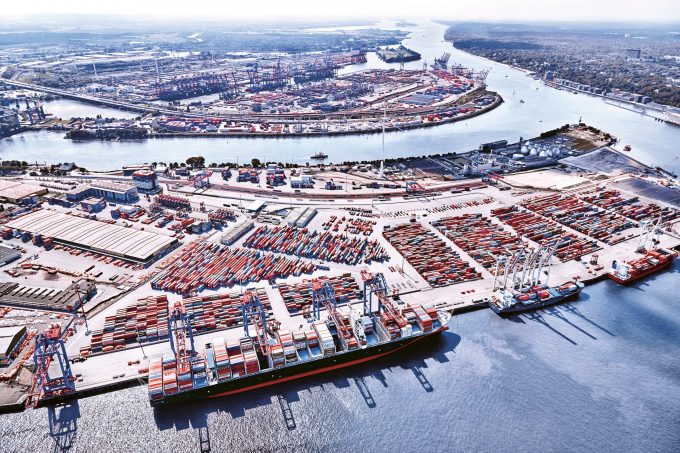Container spot rates have peaked as all major trades see prices fall
There was more evidence in this week’s container port freight markets that peak prices on ...
TFII: SOLID AS USUALMAERSK: WEAKENINGF: FALLING OFF A CLIFFAAPL: 'BOTTLENECK IN MAINLAND CHINA'AAPL: CHINA TRENDSDHL: GROWTH CAPEXR: ANOTHER SOLID DELIVERYMFT: HERE COMES THE FALLDSV: LOOK AT SCHENKER PERFORMANCEUPS: A WAVE OF DOWNGRADES DSV: BARGAIN BINKNX: EARNINGS OUTODFL: RISING AND FALLING AND THEN RISING
TFII: SOLID AS USUALMAERSK: WEAKENINGF: FALLING OFF A CLIFFAAPL: 'BOTTLENECK IN MAINLAND CHINA'AAPL: CHINA TRENDSDHL: GROWTH CAPEXR: ANOTHER SOLID DELIVERYMFT: HERE COMES THE FALLDSV: LOOK AT SCHENKER PERFORMANCEUPS: A WAVE OF DOWNGRADES DSV: BARGAIN BINKNX: EARNINGS OUTODFL: RISING AND FALLING AND THEN RISING

Weak Asian import container volumes into Hamburg caused further declines in the performance of its largest stevedore, HHLA, which yesterday reported a year-to-date revenue decline of 7.1% for the first nine months.
Total sales from January to September came to €1.09bn ($1.18bn), down from last year’s €1.17bn, and its EBITDA was hit even worse, suffering a 32.1% drop, to €64m, compared with €94.3m last year – representing a 6.5 basis point decline on its EBITDA margin.
The company said total throughput across Hamburg and its international terminals – Odessa, Tallinn and Trieste – was down 8.5% year on year, to 4.45m teu, while Hamburg itself suffered a flatter decline of 6.9%, to 4.28m teu.
“The main driver of this development was the decline in volumes of the Far East shipping region – China in particular,” it said. “The positive momentum from North American cargo volumes and the throughput volumes of the Middle East were unable to offset this trend.
“Feeder traffic volumes were also strongly down on the previous year. In addition to the reduction in Swedish and Polish traffic, volumes from Russia were also absent due to the sanctions,” it added.
However, HHLA’s intermodal operations outperformed the terminal business and, although volumes across its rail and road services were down 3.4% year on year, revenues increased by 8%, largely due to “the rise in transport revenue in the previous year, which was adjusted to the increased costs for the purchase of services, in particular energy”.
The group remains the subject of a takeover bid by MSC.
Meanwhile, data released today by Hamburg Port Authority show container throughput across the port’s box terminals, which include the Eurogate facilities, in the first nine months fell 7.4%, to 5.84m teu.
However, in what could be the first green shoots for Germany’s largest port, it said third-quarter volumes were up 2.4% year on year, to 2m teu, with growth returning to volumes from Asia, up 7.8% year on year, and from China, up 8.8% year on year.
Meanwhile, volumes from transatlantic services increased 9.4% in the first nine months, to reach 483,000 teu, although Axel Mattern, board member of Port of Hamburg Marketing, warned it was too early to conclude the port had ‘turned a corner’.
He added: “It is not yet possible to estimate the extent to which this will have a positive impact on the annual result, because the ongoing challenging geopolitical conditions and the further downward revision of Germany’s expected economic growth for 2023 do not allow any concrete statements to be made.”
Comment on this article